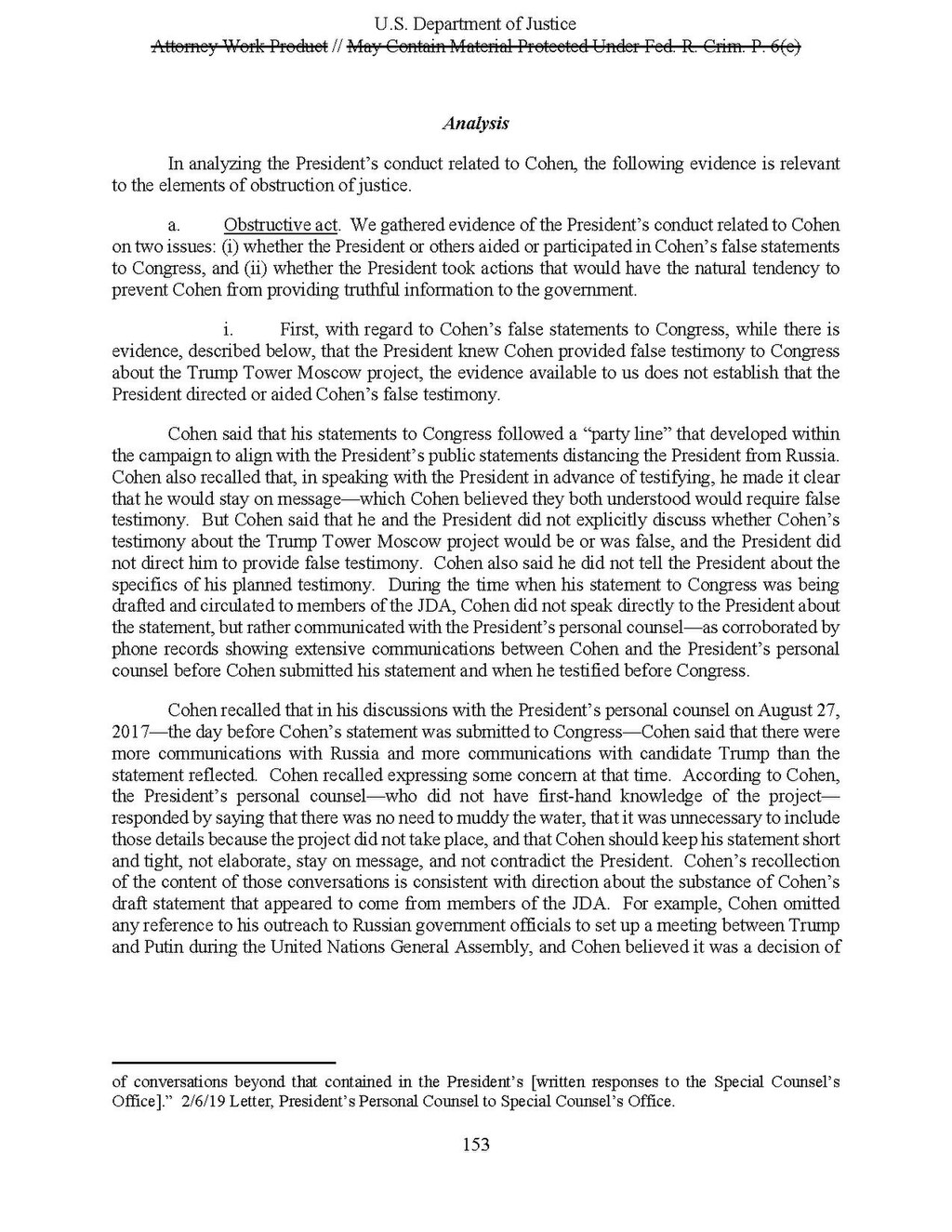U.S. Department of Justice
Attorney Work Product // May Contain Material Protected Under Fed. R. Crim. P. 6(e)
Analysis
In analyzing the President's conduct related to Cohen, the following evidence is relevant to the elements of obstruction of justice.
a. Obstructive act. We gathered evidence of the President's conduct related to Cohen on two issues: (i) whether the President or others aided or participated in Cohen's false statements to Congress, and (ii) whether the President took actions that would have the natural tendency to prevent Cohen from providing truthful information to the government.
i. First, with regard to Cohen's false statements to Congress, while there is evidence, described below, that the President knew Cohen provided false testimony to Congress about the Trump Tower Moscow project, the evidence available to us does not establish that the President directed or aided Cohen's false testimony.
Cohen said that his statements to Congress followed a "party line" that developed within the campaign to align with the President's public statements distancing the President from Russia. Cohen also recalled that, in speaking with the President in advance of testifying, he made it clear that he would stay on message—which Cohen believed they both understood would require false testimony. But Cohen said that he and the President did not explicitly discuss whether Cohen's testimony about the Trump Tower Moscow project would be or was false, and the President did not direct him to provide false testimony, Cohen also said he did not tell the President about the specifics of his planned testimony. During the time when his statement to Congress was being drafted and circulated to members of the JDA, Cohen did not speak directly to the President about the statement, but rather communicated with the President's personal counsel—as corroborated by phone records showing extensive communications between Cohen and the President's personal counsel before Cohen submitted his statement and when he testified before Congress.
Cohen recalled that in his discussions with the President's personal counsel on August 27, 2017—the day before Cohen's statement was submitted to Congress—Cohen said that there were more communications with Russia and more communications with candidate Trump than the statement reflected, Cohen recalled expressing some concern at that time. According to Cohen, the President's personal counsel—who did not have first-hand knowledge of the project—responded by saying that there was no need to muddy the water, that it was unnecessary to include those details because the project did not take place, and that Cohen should keep his statement short and tight, not elaborate, stay on message, and not contradict the President. Cohen's recollection of the content of those conversations is consistent with direction about the substance of Cohen's draft statement that appeared to come from members of the JDA. For example, Cohen omitted any reference to his outreach to Russian government officials to set up a meeting between Trump and Putin during the United Nations General Assembly, and Cohen believed it was a decision of
of conversations beyond that contained in the President's [written responses to the Special Counsel's Office]." 2/6/19 Letter, President's Personal Counsel to Special Counsel's Office.
153
